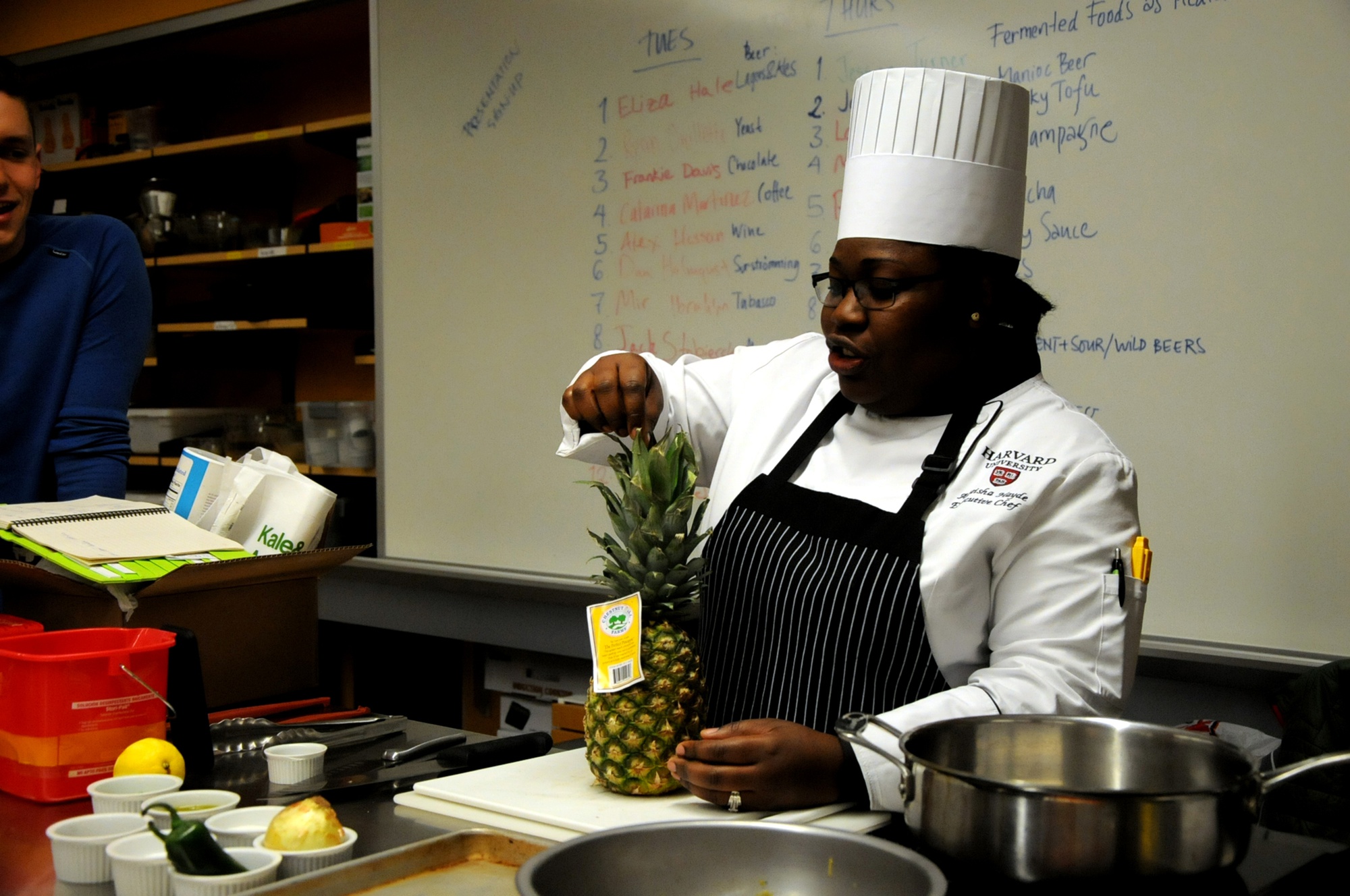
Learning to Speak Fish
“There’s no good or bad way to cook, only an untasty and tasty way to do it,” HUDS executive chef Akeisha K. Hayde announces as the Food Literacy Project (FLP)’s cooking class begins. I feel slightly out of place in the Northwest culinary lab as one of the only undergraduates—the other attendees range from local Cambridge community members to graduate school professors—but before I know it, I’m julienning jalapeños, pitting an avocado by stabbing it in the middle, and chopping onions without even crying.
This weekly cooking class, coordinated by Allyson R. Perez ’17, is one of many initiatives organized by the Food Literacy Project, a fellowship program that allows students to explore the food system through academics and experience. Fellows, coming from both the College and graduate schools, organize monthly events, which are chronicled in the weekly “Eater’s Digest.” These range from talks on nutrition for athletes to the university-wide “Just Food” conference to be held next month.

FLP fellows also meet “periodically with the dining hall chef and manager to discuss student feedback and suggestions for the menu,” Katelyn E. McEvoy ’17, the FLP representative of Lowell house, explains. Those weird little broccoli chicken breasts that you scarf down when you’re hungover on Sunday morning? The FLP reps might be the reason why they’re sticking around.
FLP’s goals go beyond influencing what we see in our dining halls. “We want to bring together the increasing study of food and connect that with the practice of food,” FLP project coordinator Margiana Rockney-Peterson explains.
The theme of today’s class is local seafood. The fish in question is fresh haddock, delivered by Jared Auerbach, who is the founder of Red’s Best, the start-up company that provides HUDS with its weekly fish. Red’s Best uses small community-based fishing fleets to connect buyers directly with local fisherman. That’s why HUDS menus always mysteriously say “Fish of the Day”—not even Hayde knows what she’ll be cooking until it arrives.
The more experienced chefs in my group stand over the burner with me as I try to sear fish without harming or embarrassing myself. Cori E. Boudreau, who works at Harvard Real Estate, is a regular cook who has attended many FLP events in the past. “I try to learn at least one new recipe a week, and I eat a lot of weird food, from ostrich, to wild boar, to crickets,” she says.
While the class started out in near silence, by the end we are all laughing, eating with our hands and licking our fingers without shame, which Hayde says was her aim for the day. “I said no utensils allowed because I wanted to show that cooking with your hands is like creating something fun and awesome.”
The practice of food definitely has a unifying effect, which is one of Rockney-Peterson’s objectives for FLP. “Food is something that brings everything together,” she says, “and one of my personal goals is to make these events a benefit to the wider community.”
As we chow on our restaurant-style fish tacos (easily better than Border’s) topped with pineapple salsa and avocados, Hayde declares us “gourmet chefs,” which makes me glow with pride, considering I called my mom to ask “which one the oven was” when I decided to bake cookies last year. Now that I’ve graduated from cookies, Canaday kitchen better watch out—Fish of the Day may be coming its way soon.


